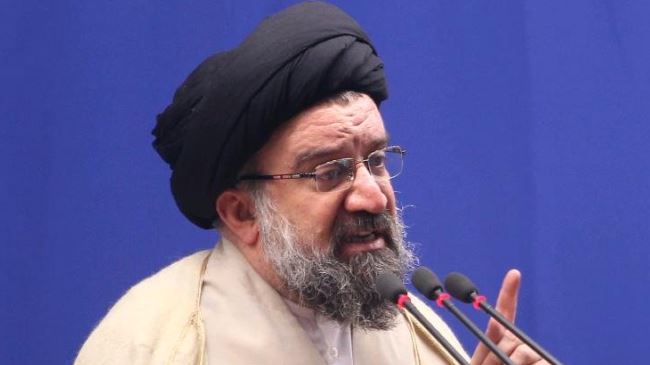
“Obama has said that the sanctions [imposed on the Islamic Republic] have made Iran come to the negotiating table, while this analysis is wrong. It was not sanctions that brought us to the negotiating table,” Ayatollah Sayyed Ahmad Khatami told worshippers at weekly Friday Prayers in Tehran, according to Press TV.
What brought Iran to the negotiating table was that the Islamic Republic wanted to leave no room for the other side to make excuses, he said.
Elsewhere in his remarks, the top cleric noted that negotiations with the P5+1 group will be beneficial for Iran even if the “only advantage” taken is that they show the US is not trustworthy.
Ayatollah Khatami’s remarks came in reaction to Obama’s Wednesday press conference at the White House in Washington.
“Because of unprecedented sanctions we (the US and its allies) put in place, that really did have a crippling effect on Iran’s economy, they (the Iranians) have come to the table and have negotiated seriously around providing assurances that they are not developing a nuclear weapon, for the first time,” Obama claimed.
Iran and the five permanent members of the UN Security Council – France, Britain, the US, Russia, China – plus Germany are set to open a new round of discussions over Tehran’s civilian nuclear work in Oman on November 11.
The two sides are in talks to work out a final deal aimed at ending the longstanding standoff over the Islamic Republic’s nuclear energy program as a November 24 deadline draws near.
Sources close to the Iranian negotiating team say the main stumbling block in the way of resolving the Western dispute over Iran’s nuclear energy program remains to be the removal of all the bans imposed on the country, and not the number of centrifuges or the level of uranium enrichment.
Tehran wants the sanctions entirely lifted while Washington, under pressure from the pro-Israeli lobby, insists that at least the UN-imposed sanctions should remain in place.
R111/112/C